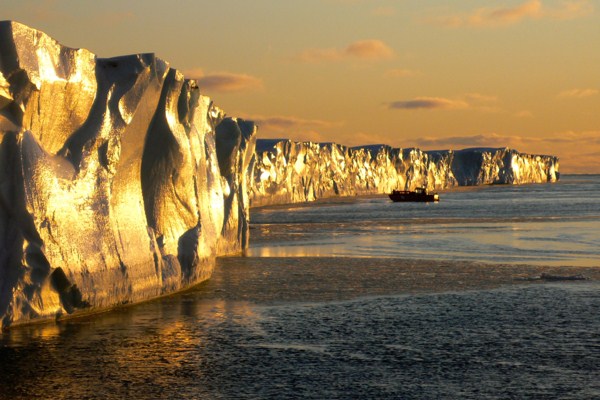In a bid to protect its own interests in the Arctic, and wary of NATO’s growing attention to the region, Russia is set to reactivate former Soviet-era bases around the North Pole. But the Kremlin would do well to monitor the actions in the Arctic of its occasional partner and possible future rival, China, rather than those of its trans-Atlantic adversary.
With global warming melting ice and making northern sea routes more passable, both Arctic and non-Arctic nations are competing for access to the mineral, hydrocarbon and fishing resources estimated to lie under the North Pole. The race is on, even with doubts that mining operations in this inhospitable environment are truly profitable.
Russian Foreign Minister Sergey Lavrov has called the Arctic “a territory of dialogue,” making NATO’s presence there “unnecessary.” Yet Lavrov’s words are at odds with the Kremlin’s military build-up in its Arctic backyard. On Oct. 21, Russian Defense Minister Sergei Shoigu declared that it would deploy military units along the entire length of the Arctic Circle, from Murmansk to Chukotka, by the end of 2014.

